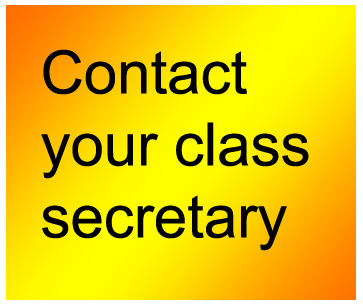April 9, 2003: Class Notes
Email your class notes...many secretaries have email. Check our online Class Secretaries Directory.


Profile:
John
Kamm ’72’s list
Businessman turned activist presses for the release of political prisoners
in China
When Buddhist nun Ngawang Sangdrol walked out of Tibet’s Drapchi prison last October 17, after serving 10 years of a 23-year sentence for participating in a pro-independence celebration outside the Dalai Lama’s former summer palace in Lhasa, few people were more elated than John Kamm ’72. Kamm, a human-rights activist and founder and chairman of the San Francisco-based Dui Hua Foundation, which works to free political prisoners in China, says he did “a great deal of work” for Sangdrol. He says he can’t discuss specifics of her release, but acknowledges holding behind-the-scenes negotiations with Chinese officials. A former businessman who lived in Hong Kong for 20 years, Kamm estimates that since 1991 he has helped free or improve prison conditions for more than 250 Chinese prisoners — a record unsurpassed by any other individual or organization in the world, according to the New York Times.
Kamm, who majored in anthropology at Princeton and speaks Mandarin and Cantonese, moved to Hong Kong after college. He set up trade fairs for the National Council for U.S.—China Trade, served as president of Hong Kong’s American Chamber of Commerce, and in 1986 became a regional vice president of Occidental Chemical, a multinational corporation, with all the rewards of such a position, including one unbeknownst to him at the time: the ability to influence the release of political prisoners.
As Kamm tells the story, in 1990, about a week before he was scheduled to leave for Washington to testify before Congress that China should be granted “most favored nation” trading status, he attended a banquet given by Zhou Nan, Beijing’s senior representative in Hong Kong. Earlier that morning, he had read a newspaper article about a Hong Kong student, Yao Yongzhan, who had been detained since the Tiananmen Square massacre the previous year and was being tortured in prison. He knew that China’s human rights record threatened to derail the granting of the coveted trade privilege.
As he was sitting at the banquet, “the idea just popped into my head” to ask his host to free the student. Despite his host’s immediate hostility, one month later Yao Yongzhan was released. “I thought it was a complete fluke,” says Kamm, who never did find out if his request led to the student’s release. But soon he had found a new calling.
A year later Kamm retired from Occidental to devote more time to what has become his life’s work, prisoner release. Kamm, who travels to China four times a year, maintains lists of political prisoners that researchers at Dui Hua (“dialogue” in Chinese) have compiled from regional Chinese newspapers and police reports. Drawing on his diplomatic know-how, his contacts with Chinese officials, and his deep knowledge of the language and culture, he negotiates with government officials for prisoners’ release. And he does it with such tact and subtlety that he manages to come off as a friend to both sides.
For his humanitarian efforts, Kamm received the 2001 Eleanor Roosevelt
Award for Human Rights from President Bush. “People ask me why I
do this,” Kamm says. “The answer is: because I can.” ![]()
By Kathryn Levy Feldman ’78
Kathryn Levy Feldman is a freelance writer in Bryn Mawr, Pennsylvania.

